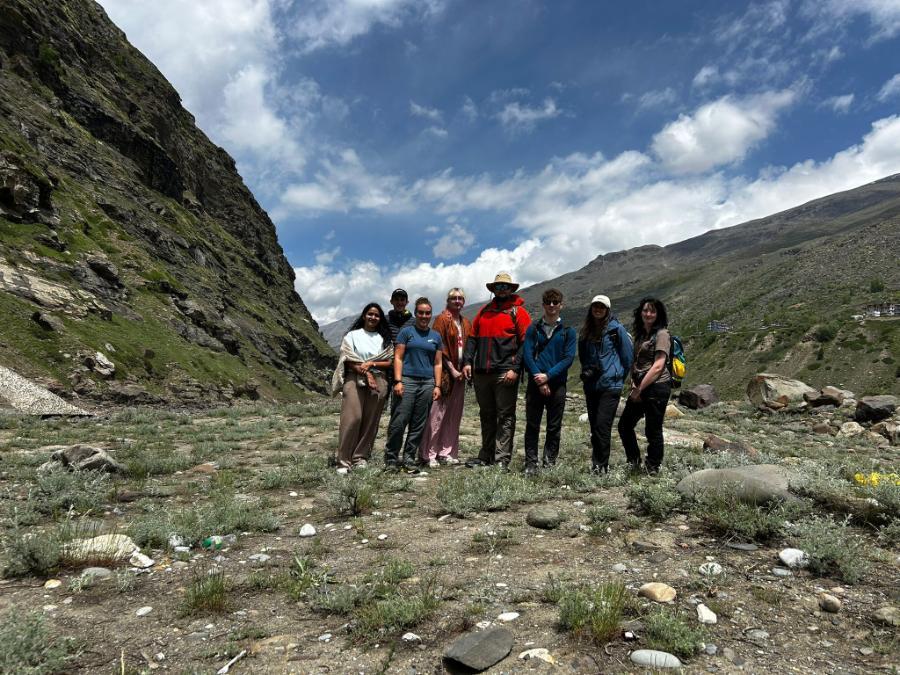
When Traits Travel: A New Take on Tourism
Delia Moisa, PhD in Tourism Management, University of Cumbria
When I first began researching visitor behaviour, I assumed that people’s travel decisions were shaped mostly by familiar factors like age, nationality, or income. After all, these are the categories we see most often in tourism statistics and marketing reports. However, during my PhD, I realised these surface-level categories only tell part of the story. What really matters is something deeper and far more enduring: our personality traits.
Psychologists often describe personality through the Big Five (sometimes called OCEAN) model: Openness to Experience, Conscientiousness, Extraversion, Agreeableness, and Neuroticism. These traits are the patterns of thought, feeling, and behaviour that make us who we are, and unlike demographics, they remain relatively stable throughout our lives.
In my research in Cumbria, I surveyed more than 1,000 visitors and spoke with both travellers and local businesses. What I discovered surprised me. Two people visiting Cumbria might both say they are “looking for adventure.” However, what “adventure” means to them is entirely different.
For someone high in conscientiousness, adventure might mean climbing a mountain with a qualified guide, earning a certificate, and ticking off a personal achievement. For someone high in openness to experience, the same adventure might mean exploring a hidden cave, hearing local legends, and discovering something unexpected. Both are adventures, but the motivations behind them are different. to experience, the same adventure might mean exploring a hidden cave, hearing local legends, and discovering something unexpected. Both are adventures, but the motivations behind them are different.
This insight reshaped how I think about tourism. When destinations and businesses only market based on demographics or interests, they risk misunderstanding their visitors. A 30-year-old from London and a 30-year-old from Manchester might have very different reasons for choosing the same activity. By focusing on why people travel, not just who they are, we can design experiences that truly resonate.
The implications go beyond individual satisfaction. Businesses can reduce wasted marketing spend by reaching the customers who are most likely to connect with their product. Destinations can also manage visitor flows more sustainably, dispersing people to under-visited attractions that match their personality. In a place like Cumbria, this could mean easing pressure on popular sites
For me, this research bridged a gap between psychology and tourism. It showed me that travel is not just about moving through places; it’s about fulfilling deeply personal motivations that shape how we engage with the world. As a researcher, and as a traveller myself, I now see every journey differently: not as a checklist of things to do, but as an opportunity to understand what really drives people to explore.
Further reading:
Moisa, D.G., Parapanos, D. and Heap, T. (2024) "Exploring Strategies to Market SMEs' Activities: The Role of Personality Traits and Travel Motivations in Tourist Activities." Tourism Hospitality, 5 (4), pp. 1042-1064. Available at: https://doi.org/10.3390/tourhosp5040059
Moisa, D.G., Parapanos, D. and Heap, T. (2025) "The Role of Digital Footprints for Destination Competitiveness and Engagement: Utilizing Mobile Technology for Tourist Segmentation Integrating Personality Traits." International Journal of Tourism Research, 27: e70006. Available at: https://doi.org/10.1002/jtr.70006
Name, Role, Institute
Delia Moisa, PhD in Tourism Management, Institute of Business, Industry & Leadership, University of Cumbria
Project Title
Phd Thesis: Reframing Tourist Segmentation: a Personality-Based Approach to Enhance Sustainable Destination Management
Acknowledgement
This research was conducted under the supervision of Dr Demos Parapanos and Tim Heap, Institute of Business, Industry & Leadership, University of Cumbria.
Funding
This research was supported by the University of Cumbria including funding from Cumbria Innovations Platform II (CUSP II), a European Regional Development Fund project.
Want to find out more about our Postgraduate Community?
A postgraduate research degree at the University of Cumbria offers the perfect opportunity to follow your passion, enhance your skills and influence the world around you. As the blogs here show, we are home to a rich community of people from all kinds of backgrounds and career points. Rated as the best University in the UK for overall PhD experience in 2025, Cumbria offers a welcoming, supportive and challenging environment to utilise your enthusiasm and knowledge and turn it into insightful and impactful work. If you are interested in undertaking a research degree with us, then please contact Professor Tom Grimwood via Tom.Grimwood@cumbria.ac.uk for a conversation.

.jpg)


.jpg)